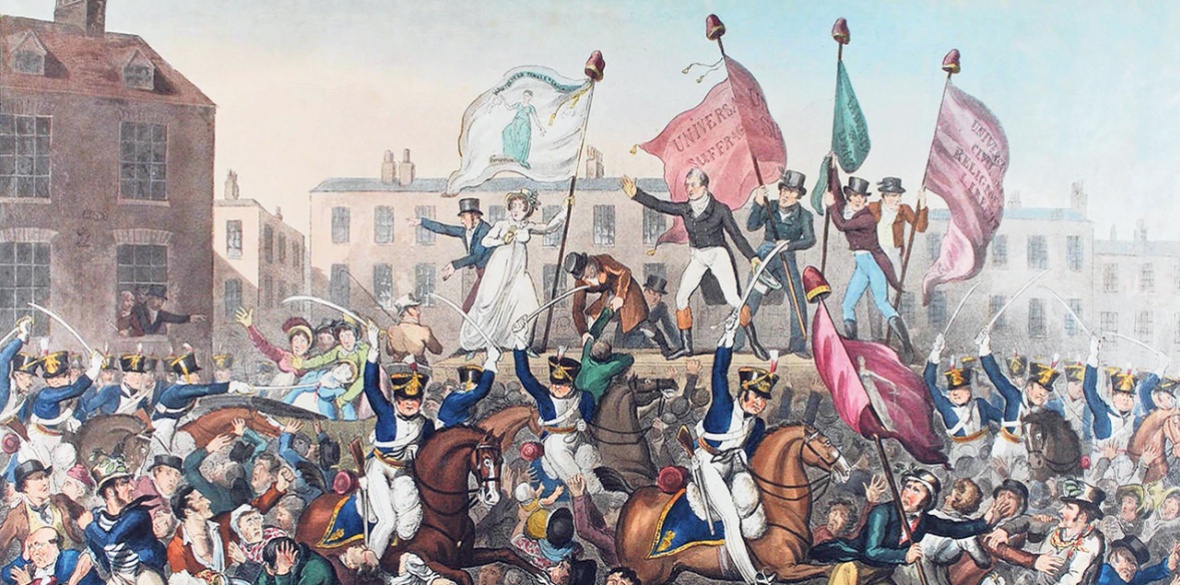This is the last article you can read this month
You can read more article this month
You can read more articles this month
Sorry your limit is up for this month
Reset on:
Please help support the Morning Star by subscribing here
THIS year has been the 200th anniversary of Peterloo and with it Shelley’s poem the Masque of Anarchy has received fresh publicity.
It was read by actor Maxine Peake in the historic John Rylands library in Manchester as part of the anniversary activities.
The Masque of Anarchy was not freely available until some years after Peterloo, but the first poem Shelley wrote of political note, while still a student at Oxford in 1811, a Poetical Essay on the Existing State of Things, was published at the time.
It was written in defence of a radical journalist, Peter Finnerty.
It was long believed to have been lost but in 2015 it was bought by the Bodleian Library in Oxford, digitised and made freely available to view online.
The poem has considerable wider interest because of its subject matter, namely Finnerty the Morning Chronicle reporter.
Finnerty (1766-1822) was Irish and had been active in the United Irishmen in the late 1700s. He printed a nationalist paper, The Press, and in 1797 was charged with seditious libel for an article the journal had published criticising a judge. He was sentenced to two years in prison.
On his release Finnerty came to London and was employed as a reporter for one of the leading papers of the day, the Morning Chronicle. The Chronicle was of a “Whig” or “Liberal and Radical” political line.
Finnerty reported for the Chronicle in the Walcheren campaign, a failed attempt by British imperialism to annex part of Holland in a wider war for dominance in Europe. The aim ahead of Waterloo was to attack French power.
Finnerty’s view was “neither Britain nor Napoleon” — and this didn’t prove popular with the British government.
The Financial Times described Shelley’s poem as “an angry polemic against militarism and imperialism” — and the poem may have played a part in Shelley being expelled from Oxford in 1811.
The poem was in effect written to publicise and raise funds for the case of Finnerty, who had been charged with libel for his reporting of the British Army’s activities in Holland. He was sentenced to jail.
A central figure in the poem is the radical leader Sir Francis Burdett who led the campaign to defend Finnerty. The Walcheren campaign had been led by the Minister for War, Viscount Robert Castlereagh. He chose to pursue Finnerty for libel, not for his actual reports of the campaign but for a letter in the Morning Chronicle where the journalist had accused Castlereagh, then Irish Minister, of sanctioning the use of torture in Ireland in the late 18th century in relation to the activities of the United Irishmen.
On his release Finnerty continued to report for the Chronicle and clashed again with Castlereagh when covering parliamentary business in the House of Commons in June 1819.
He had been accused of reporting proceedings from an inappropriate place in the House and while there was some mood to detain him, Castlereagh, by now Foreign Secretary and Leader of the House, successfully moved for his admonishment instead.
It’s not known if Finnerty was at Peterloo on August 16 1819, but he was certainly in Manchester in the months that followed at the inquest of one of those killed, John Lees.
The Times reported that Finnerty was one of a handful of people who viewed Lees’s body before the inquest started.
John Lees had survived Waterloo only to be killed at Peterloo. One man linked those two episodes — and he was Castlereagh, the Minister whom Finnerty had pursued as a radical journalist over more than 20 years.










